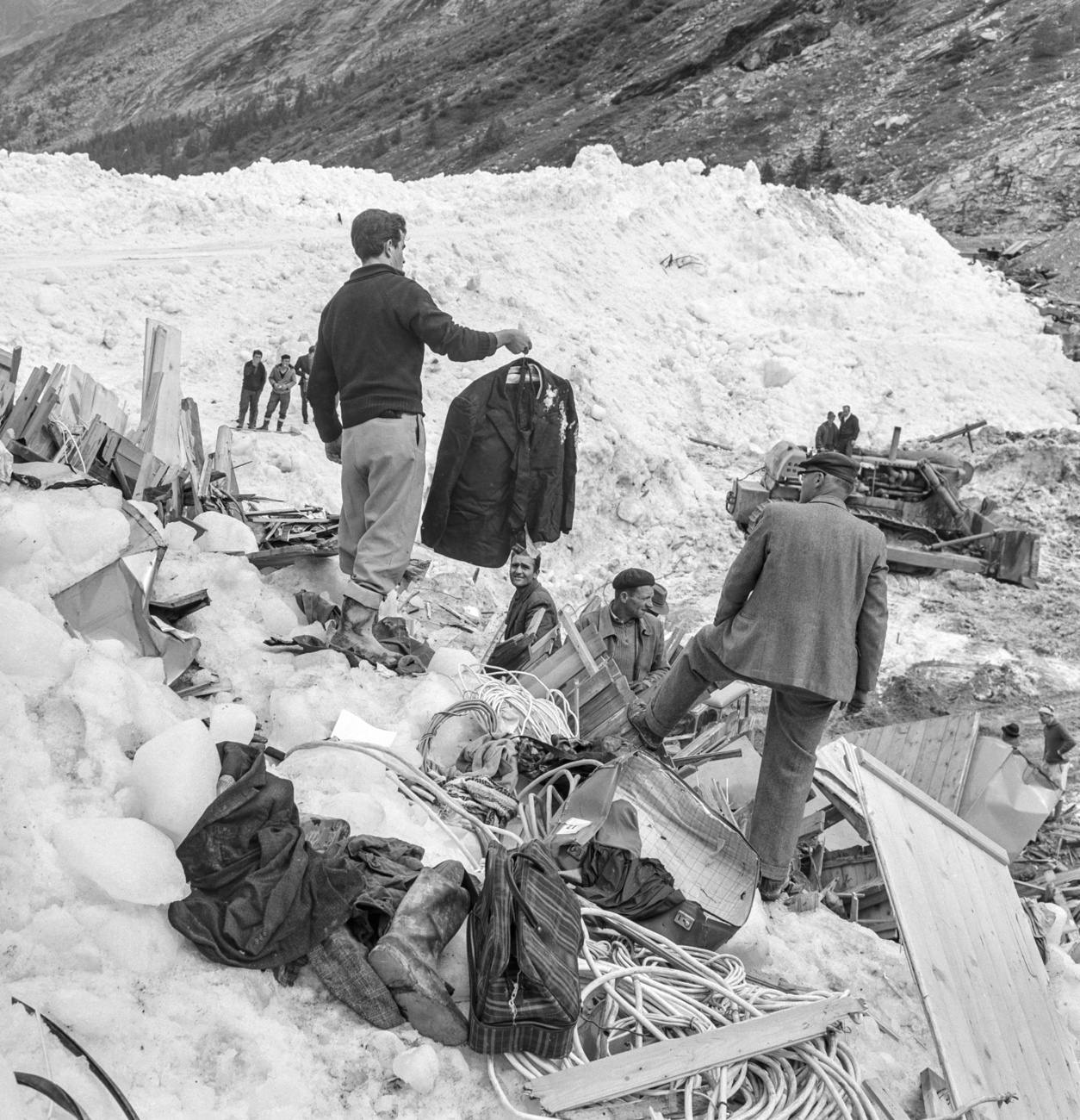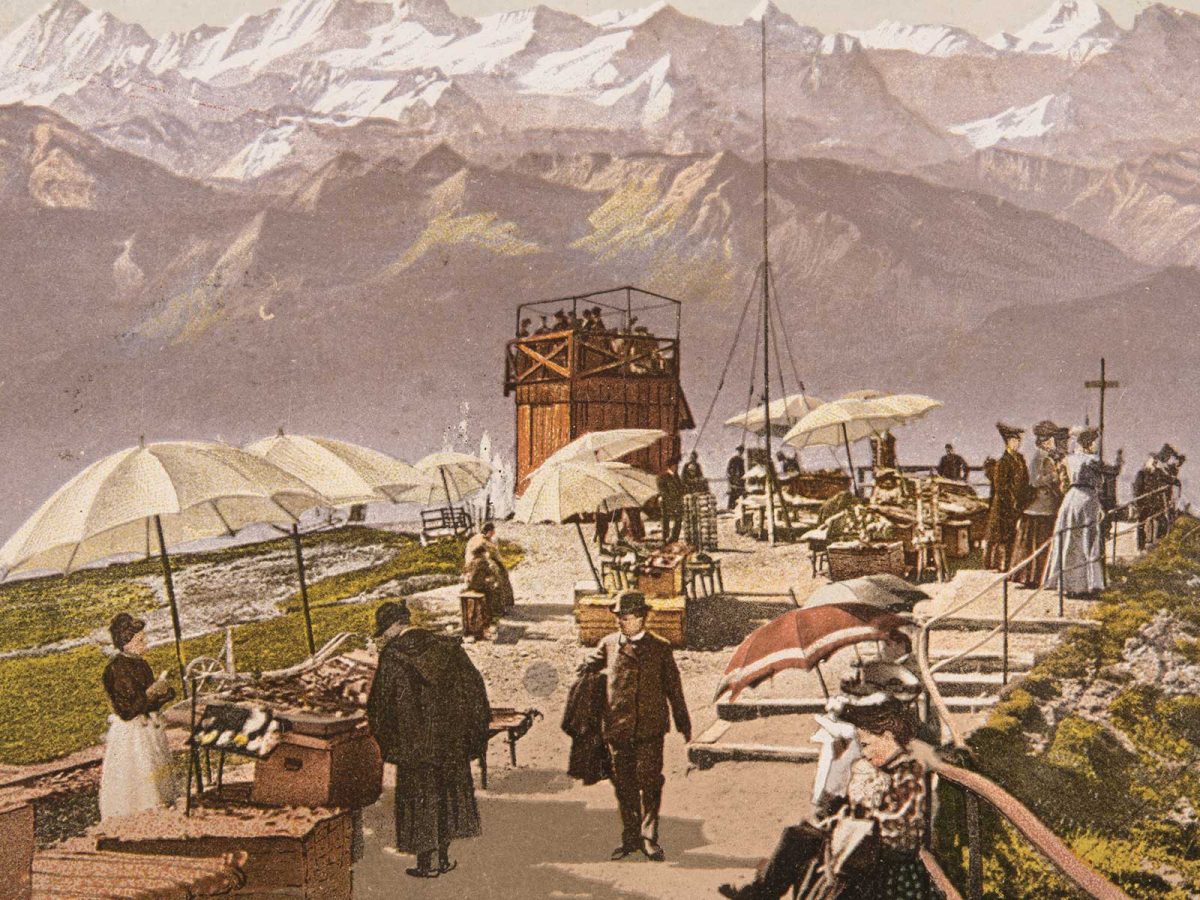
A Swiss mercenary who served Britain in America

A Swiss soldier in the service of the British king defeated the French to open up the way to the conquest of the American west.
In 1756 Henry Bouquet, a colonel from western Switzerland, commanded the 60th British regiment, the so-called Royal Americans, which was essentially made up of German, Dutch and Swiss mercenaries, recruited to help in the colonisation of America.
“Bouquet has played an important role in shaping Pennsylvania and the push toward the West,” Conrad Ostertag, standing on the corner of Bouquet Street in Pittsburgh, told swissinfo.ch.
“He’s one of the founders of Pittsburgh, he removed the French from what will become Fort Pitt, he routed the Indians away and so, he opened the West to the British,” explained Ostertag, an active member of the local Swiss-American community.
“Bouquet is a heroic figure, he was not only a very good military tactician but also a great leader able to surround himself with good officers,” added Andrew Gaerte, Education Department manager at the Fort Pitt Museum, which is to stage an exhibition about Bouquet in 2013-2014.
George Washington
Bouquet’s officers included a certain George Washington. The future founding father of the American nation and first president of the United States was, according to Gaerte, “a young and very arrogant man at this time”.
“Bouquet is really annoyed with George Washington but he keeps him because Washington is a good captain.”
Bouquet’s first hour of glory came in 1758. British Prime Minister William Pitt wanted to take Fort Duquesne, a French military post located close to the far frontier of what was then European-settled territory. The fort was built on a spit of land at the confluence of the Monongahela and Allegheny rivers, which meet to form the Ohio. The site was eminently strategic.
“This spot was the gateway to the West, a unique access point because the Ohio flows into the Mississippi, therefore whoever controlled that confluence could control trade with the Indians and ways to settle the vast territory beyond, plus have a tremendous influence on world affairs,” explained Alan Gutchess, the director of the Fort Pitt Museum.
6,000 men
Although only second in command to the British general, John Forbes, it was Bouquet who led the operation to capture Fort Duquesne as Forbes was gravely ill. The Swiss recruited and trained German settlers and Cherokees who, supported by his own troops, advanced westwards, mapping out a route and building forts.
Very soon Bouquet was leading 6,000 well-disciplined men who constituted such a formidable strike force that the French decided to raze Fort Duquesne and abandon the area. Bouquet ordered the construction of a new fort over the ashes which Forbes named Fort Pitt in honour of the British premier, and the founding of a village to be named Pittsburgh.
But despite the French defeat Bouquet could not afford to rest on his laurels. The native American tribes were alarmed at the strong advance of the British settlers. Their chief, Pontiac, launched an uprising in 1763, using guerrilla tactics. The commanders of some of the forts that Bouquet had had built five years earlier, were taken by surprise. But Bouquet himself was better prepared: he had realised that European-style warfare was not well suited to America, and had learned native tactics.
Having destroyed several forts, Pontiac’s men had come to within 200 kilometres of Philadelphia and were besieging Fort Pitt, which was under the command of another Swiss, Simon Ecuyer. The stone and brick fort, which Bouquet himself had established, was one of the most imposing of the time with hundreds of soldiers and settlers living in it.
Bouquet’s task was to relieve the fort and crush the rebellion. Using ambushes and other native American methods, he made rapid progress with a lightly-armed force through the dense forest, guided by a German trader living in the region, and his wife, a Swiss named Béatrice Guldin. Pontiac’s rebels were smashed and the last men besieging the fort fled.
The end of the story
In 1764, Bouquet signed a peace treaty with the native Americans, which opened up the huge territory stretching west of the Appalachians to European settlement.
The following year, the Pennsylvania assembly passed a unanimous resolution expressing its gratitude towards Colonel Bouquet. King George III also sent his thanks to the Swiss, named him commander of the British forces in Florida and promoted him brigadier general despite rules governing the careers of mercenaries.
“The salary mercenaries got in the British army was far more than what they could get in the Austrian, Prussian or Danish armies,” said Gaerte. “Enticing also was the promise of land after the end of their service which was a real engagement from the part of the British government; regular soldiers were given 50 acres of land in America, someone like Bouquet would have been able to get 5000 acres.”
But Bouquet didn’t live long enough to own land in America. No sooner had he arrived in Pensacola in Florida than he succumbed to yellow fever. He was 46 years old. It was more than ten years since he had seen his native country which he loved so much.
Born in Rolle, in southwestern Switzerland, 1719.
At 17 takes service with the Dutch army, and later serves the King of Sardinia.
Made colonel at 29, he then serves in the Vatican Guard.
Enters British service in 1755, and arrives in America in 1756.
Captures Fort Duquesne from the French in 1758.
Defeats Pontiac’s rebellion in 1764.
Promoted to brigadier general in 1765, and given command of British forces in the southern colonies.
Dies of yellow fever in Florida in 1765.
1492: America discovered by Christopher Columbus.
1585: First English settlement at Roanoke, founded by Sir Walter Raleigh.
1607: English settlement at Jamestown, Virginia.
1620: Arrival of the Pilgrim Fathers in Massachussetts.
By the 18th century, Britain has 13 colonies stretching along the Atlantic coast.
1754-63: French and Indian War, between France and its native American allies, and Britain.
1775: Start of War of Indpendence.
4.7.1776 Declaration of Independence.
1789: Washington becomes first president.
(translated from French by Morven McLean)

In compliance with the JTI standards
More: SWI swissinfo.ch certified by the Journalism Trust Initiative







































You can find an overview of ongoing debates with our journalists here . Please join us!
If you want to start a conversation about a topic raised in this article or want to report factual errors, email us at english@swissinfo.ch.